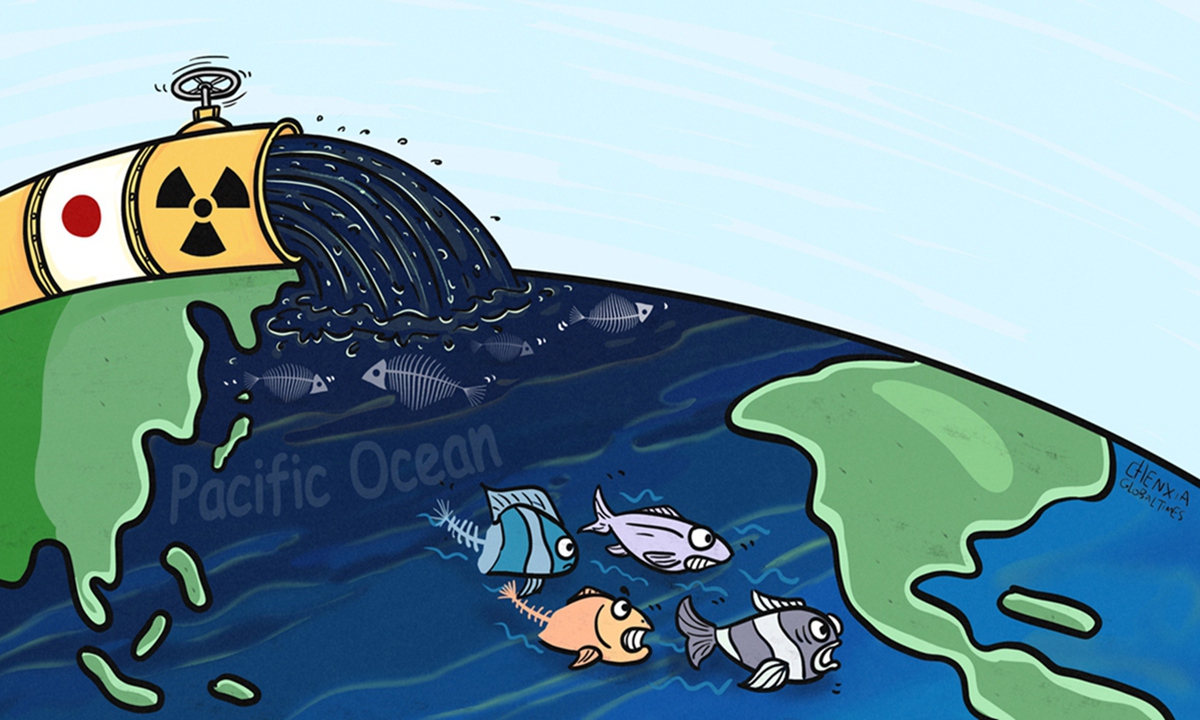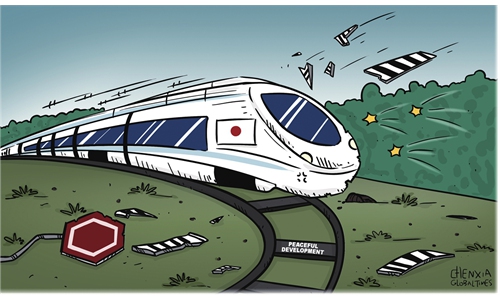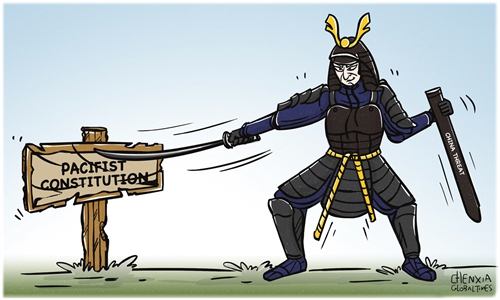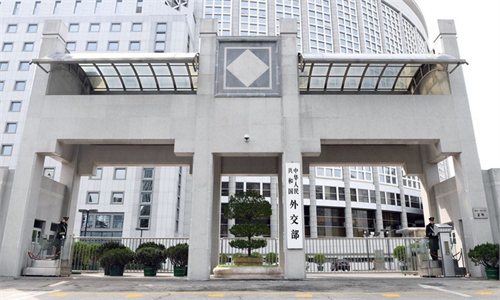
Illustration: Chen Xia/GT
In recent years, Japan has increasingly aspired to become a global power, placing greater emphasis on overseas geopolitical interests and even prioritizing them over its own environmental security and that of its neighboring countries. As the Eighth Tokyo International Conference on African Development (TICAD) began in Tunisia on Saturday, Japanese Prime Minister Kishida Fumio, in his online speech to the latest TICAD, promised $30 billion over the next three years for Africa's development, with a focus on investing in human capital and fostering quality growth. However, Japan's aid to Africa this time has received little response from the continent, and has even been met with weariness by many African countries.Japan has long used aid as an important diplomatic tool, and was an early Asian country to start looking to Africa. Japan was the world's top donor in 1991, but its total aid has been shrinking as its debt swelled. The mechanism of TICAD was formed under such circumstances, which is considered a multilateral mechanism with a full range of Japanese diplomatic, political and economic considerations, noted He Wenping, director of the African Studies Section at the Institute of West Asian and African Studies under the Chinese Academy of Social Sciences.
Politically and diplomatically, Japan has been striving to become a "normal country" and even a permanent member of the UN Security Council. Therefore, TICAD is hoped to function as a "canvassing mechanism" to collect support for Japan from the 54 countries in the African continent. Economically, Japan, a small and resource-poor country, needs Africa's abundant resources and vast market from the perspective of long-term development.
Regarding the latest conference, Japan apparently has more geopolitical considerations on Africa now. Yang Xiyu, senior research fellow at the China Institute of International Studies, said that since Kishida stressed in his speech that Japan will grow together with Africa, differentiating Tokyo's approach from that of China, it's clear that Japan is ambitious and it considers China as its competitor in Africa. Without China's existence in Africa, it's hard to imagine that Tokyo would have proposed such a big cooperation project.
Meanwhile, Japan is also cooperating with the US in Washington's overall strategy of ganging up against China-proposed Belt and Road Initiative. Considering the upcoming US-Africa Leaders Summit scheduled for December, as well as US Secretary of State Antony Blinken's recent visit to Africa, it's obvious that all parties are competing for Africa, countries of which occupy quite a few seats in the UN, especially after the outbreak of the Russia-Ukraine conflict. Many UN resolutions can take the moral high ground if supported by most African countries. Japan's promised aid this time, for example, emphasizes on personnel training which is in line with previous US policy. In this way, Western values can be embedded among the locals and the recognition of Western countries will be enhanced, noted He.
In fact, China has never opposed aid cooperation from other countries to Africa, as long as it can promote Africa's development and solve problems such as poverty. What China opposes is the vicious attempt by Western countries, including the US and Japan, to discredit China, asking African countries to be "wary" of China at every turn. "African countries have their own judgment and do not need the West to teach them what to do," said He. Moreover, what Africans have been most dissatisfied with for quite a long time is the conditional assistance from Western countries. Especially after the Cold War, the West even repeatedly used aid to blackmail African countries into "democratization," which is a brutal interference in the development path of the regional countries.
There are many problems with Japan's investment in Africa. Yang pointed out that due to the deindustrialization, the efficiency of Japan's overseas aid these years is far less than that of its prime in the 1980s. According to He, despite Japan's high-profile aid plan this time, the scale of its projects in Africa is still not comparable to that of China's. China is Africa's largest trading partner since 2009. In 2021, China's trade with Africa reached $254.2 billion and US' trade with Africa was just over $64 billion. At the same time, Japan's total import and export trade with Africa was only $16.5 billion in 2020.
Japan's "generous offer" to Africa with a selfish intention is still not enough to establish competitiveness with China. In contrast to its generosity abroad, Japan has been stingy in dealing with the wastewater contaminated by the wrecked Fukushima Daiichi Nuclear Power Plant by dumping it into the ocean, which is the most irresponsible. Yang noted this reflects that Japan's strategic priorities have been given to global competition for resources and overseas aid efforts, rather than its neighboring environmental security. Japan has clearly made the wrong choice. Instead of planning to spend $30 billion in Africa to needlessly compete with China, it's better to allocate even a small part of it to deal with what is happening on its own doorstep, especially the nuclear contaminated wastewater.



